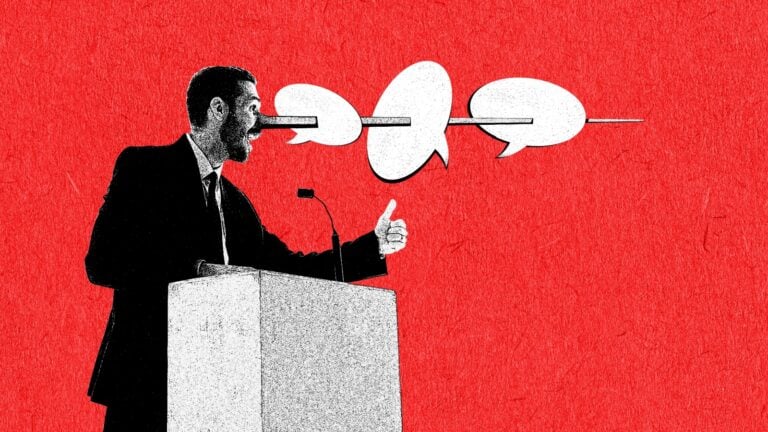Fired Without Warning? Here’s How to Take Control of the Situation
Getting fired can be a shocking and stressful experience. However, understanding your rights and taking the right steps can help you navigate this challenging situation. Here’s what you need to know if you find yourself suddenly unemployed.
Understanding the Legality of Your Termination

The first step is to determine whether your firing was legal. Most employment in the United States is “at-will,” meaning an employer can terminate an employee at any time for any reason, or for no reason at all, as long as the reason is not illegal. However, there are important exceptions to this rule.
Legal vs. Illegal Termination

Legal termination complies with applicable laws and regulations. It can be based on reasons such as poor performance, misconduct, company downsizing, or economic factors. On the other hand, wrongful termination occurs when an employee is fired in violation of federal, state, or local laws, or in breach of an employment contract.
Signs of Wrongful Termination

Wrongful termination may have occurred if you were fired due to:
- Discrimination based on protected characteristics (race, gender, age, religion, disability, etc.)
- Retaliation for reporting workplace misconduct or safety violations.
- Taking protected leave (e.g., under the Family and Medical Leave Act).
- Refusing to engage in illegal activities at work.
Steps to Take After Being Fired

1. Remain Professional: When receiving news of your termination, try to remain calm and professional. This can be difficult, but maintaining composure is crucial for your future prospects.
2. Ask for the Reason: Request a clear explanation for your termination. This information can be valuable for improving yourself professionally and determining if the firing was legal. Some questions you might ask include:
- “Can you provide more information about why this decision was made?”
- “What could I have done differently to avoid this outcome?”
Negotiate Your Departure

If possible, try to negotiate the terms of your departure. This may include severance pay, continuation of benefits, or assistance in finding new employment.
Collect Important Information

Before leaving, gather any personal belongings and important work-related information you’re legally allowed to take. This might include:
- Contact information for colleagues and professional connections
- Copies of your performance reviews
- Documentation of your achievements
- Be cautious not to take any proprietary company information, as this could lead to legal issues.
File for Unemployment Benefits

Check your eligibility for unemployment benefits with your state unemployment office. If eligible, apply as soon as possible.
READ: USA.Gov Unemployment Benefits
Review Your Employment Contract

If you have an employment contract, review it carefully. It may contain clauses about termination procedures, severance, or non-compete agreements.
Seeking Help and Advice

Safe People to Contact
- Employment Attorney: If you suspect wrongful termination, consult an employment lawyer. They can advise you on the legality of your firing and potential next steps.
- State Labor Department: Your state’s labor department can provide information about your rights and help you file a claim if necessary.
- Equal Employment Opportunity Commission (EEOC): If you believe you were fired due to discrimination, you can file a complaint with the EEOC.
- Trusted Former Colleagues: Reach out to colleagues you trust for support and potential job leads. Be cautious about discussing the details of your termination.
- Career Counselor or Coach: These professionals can help you process the emotional impact of job loss and guide you in your job search.
Who to Avoid

- Current Employees: Be cautious about discussing your termination with current employees of your former company, as this could complicate legal matters or damage your professional reputation.
- Social Media: Avoid venting about your termination on social media platforms. This could harm your future job prospects.
Your Legal Recourse

If you believe you were wrongfully terminated, you have several options:
- File a Complaint: You can file a complaint with the EEOC or your state’s labor department.
- Negotiate a Settlement: Your attorney may be able to negotiate a settlement with your former employer without going to court.
- File a Lawsuit: If negotiations fail, you may choose to file a wrongful termination lawsuit. However, you typically need to file a claim with the relevant agency (like the EEOC) first.
If you are a federal employee, the termination process and your rights differ significantly from those in the private sector. Federal employees generally have more protections and a structured process for termination.
Termination Process for Federal Employees

The federal employee termination process typically involves several steps, however, this article is initially being published in February 2025. Due to the Trump administrations volatile approach, things are changing and the following may or may not apply:
- Counseling: Supervisors often provide counseling on performance or conduct issues before taking formal action.
- Notice of proposed action: You must receive at least 30 days’ advance written notice specifying the reasons for the proposed removal.
- Right to respond: You have the right to respond orally or in writing and submit evidence defending against the reasons for removal.
- Evaluation by deciding official: A higher-level official reviews your response and makes a final decision.
READ: Federal Employee Termination Laws: A Complete Legal Guide 2024
Legal Rights of Terminated Federal Employees

As a federal employee, you have several important rights:
- Due Process: Your employer must provide at least 30 days’ notice and a detailed description of alleged misconduct before termination.
- Right to Appeal: You can appeal your case to the Merit Systems Protection Board (MSPB).
- Right to Representation: You have the right to be represented by counsel during the appeals process.
- Right to Reinstatement: If your appeal is successful, you must be reinstated with back pay and benefits.
- Right to File a Complaint: You can file a complaint with the Office of Special Counsel (OSC) for violations of federal employment laws.
Legal Grounds for Termination

Federal agencies must have just cause for terminating an employee. Common grounds include:
- Misconduct (e.g., harassment, insubordination).
- Security violations.
- Criminal behavior on or off duty.
- Consistently unacceptable job performance.
Probationary Employees

If you are a probationary federal employee (typically within your first year of service), your rights are more limited:
- You have very limited appeal rights to the MSPB.
- You can only challenge a termination based on marital status or political affiliation before the MSPB.
- You are entitled to written notice stating the agency’s reasons for separation and the effective date of removal.
Severance Pay

If you are involuntarily separated from federal service, you may be eligible for severance pay. However, if you later accept another position with the federal government or the government of the District of Columbia, your severance pay will be terminated.
Remember, if you believe you were wrongfully terminated, it’s crucial to consult with a federal employment attorney who can guide you through the complex process of appealing your termination or filing a complaint.
Moving Forward

While losing a job is challenging, it’s important to focus on your future:
- Take Time for Reflection: Use this time to reassess your career goals and what you want from your next job.
- Update Your Resume: Revise your resume to highlight your most recent experiences and achievements.
- Network: Reach out to your professional contacts and inform them that you’re looking for new opportunities.
- Develop New Skills: Consider taking courses or obtaining certifications to enhance your skillset and employability.
- Take Care of Your Mental Health: Job loss can be emotionally taxing. Don’t hesitate to seek support from friends, family, or a mental health professional.
Remember, being fired doesn’t define your career. Many successful professionals have faced job loss at some point. By understanding your rights, taking appropriate action, and focusing on your future, you can turn this setback into an opportunity for growth and new beginnings.
7 Ways to Secure Health Insurance Coverage After Losing Your Job

Losing employment can feel like navigating turbulent waters without a compass. The uncertainty of health coverage adds to the stress. However, understanding your options can bring clarity and relief. We understand the challenges that come with such a situation and offer clear pathways to secure coverage. Let’s explore the options.
READ: 7 Ways to Secure Health Insurance Coverage After Losing Your Job
Join Us

Join us on this empowering journey as we explore, celebrate, and elevate “her story.” The Queen Zone is not just a platform; it’s a community where women from all walks of life can come together, share their experiences, and inspire one another. Welcome to a space where the female experience takes center stage. Sign up for our newsletter so you don’t miss a thing, Queen!







